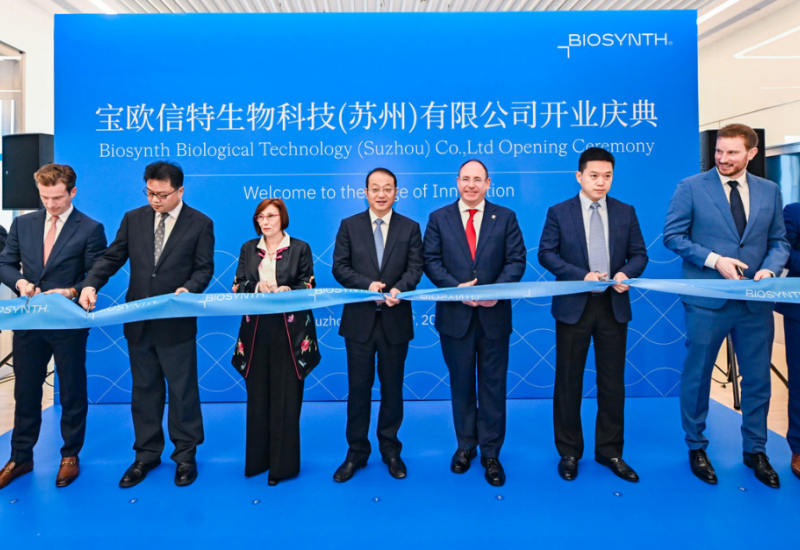Feature article - CDMO relationships: Set your oversight early, but do not dictate all the rules
A little flexibility in approach will improve consistency and enable pharma partners to perform to their optimum level. Ahead of her presentation on ‘How to Build a ‘Framework for Managing Your Outsourcing Partner’ at CPhI North America, we spoke with Stephanie Gaulding, executive director of regulatory compliance at Pharmatech Associates
CPhI North America is taking place as a ‘smart’ event this year, with the online learning and networking running on 9-27 May and the in-person event at the Pennsylvania Convention Centre on 17-19 May. The event spans the entire pharma supply chain from ingredients, finished dose, contract services and fine chemicals to biologics, packaging and machinery.
SCM: Why and when do drug sponsors tend to struggle with their oversight of outsourced services?
SG: A lot of firms struggle with oversight, particularly in what I would call the clinical phase of manufacturing. It is just when they are prepping for that first launch that a lot of the large challenges seem to arise. These are usually caused by the fact that start-ups and smaller organisations have a large propensity to outsource manufacturing capacity for which their experience is not necessarily as deep as it might be with a larger organisation. In my presentation I will be talking about what a good framework looks like and how the priorities shift and change as you move through that manufacturing pathway.
SCM: How important is it to establish a close working relationship with a CDMO?
SG: Absolutely vital. One thing I often see is a misunderstanding of responsibilities when companies pull in outsourcing partners, especially at the clinical stage. Many think they can rely on their outsourcing partner to release product and make a lot of important decisions for them. However, there are certain areas where health authorities have set some pretty clear expectations that really are the direct sponsor’s responsibility. Once you start your outsourcing strategy it may well evolve as you add, or switch, partners. So, you need to think carefully about how you dial in the oversight that is appropriate and effective, not only for the current stage of the product’s life cycle, but also for the history and the performance that the outsourcing partner you’ve selected is providing you.
SCM: When are companies likely to transition between CDMOs?
SG: Some outsourcing strategies will start with a particular CDMO that is only capable of supporting early-stage clinical studies. If they are targeting a rare disease or making an orphan drug they may select a CDMO in the early stages and stick with it all the way through to launch. But, for many companies, the scales between their early clinical studies and their final patient population will be substantially different, and consequently they will have to shift to a different CDMO when they go commercial. At this point, they may also look at diversifying and pulling in additional manufacturing capacity, thereby going from single CDMO to multiple partners, which can also introduce complexities needing careful oversight from a product perspective.
SCM: Is there an overriding key to a successful relationship with a CDMO?
SG: Establishing a good working relationship is certainly one of the keys to success, but many companies focus too much on supply agreements and quality agreements. I am not saying that those are not important but, fundamentally, to be really able to modulate your oversight on the supplier, it is about the relationship. It is about communication, transparency, and leadership - the softer side of the business. The basis for this is setting up a framework that allows for the appropriate and expedited communication strategies needed to support the work with each particular service provider. You can talk about the contractual documents and the like, but often what gets overlooked in this early stage is the communication infrastructure – often because many companies may not necessarily have the inherent expertise to understand the importance of those frameworks.
SCM: How do you identify what those in-house core responsibilities are going to be, and what the CDMO should do?
SG: The starting point is really looking at all of the regulatory guidance. I encounter a lot of companies that are into Phase I and II manufacturing yet have not put any quality agreements in place and do not have master service agreements. They may be handling things on a purchase order or similar basis, but this means they are operating without a legal framework from a master services perspective. I have also encountered examples where a drug sponsor is relying on their CMO to make the call as to whether or not the batch is acceptable. This is really not the way it should be operated, as there are certain responsibilities that the drug sponsor needs to maintain in house. On the other hand, it does not mean that when setting up those frameworks they need to replicate all the documentation that their outsourcing partner is generating for them or all the decisions that their partner is making. But they do need to establish a means by which that documentation and those critical decision points can come into their quality framework.
SCM: How do you go about writing a quality or a master service agreement, and when should you start?
SG: I always say it should be at the beginning. At the point where, if you're drafting a master services agreement with a CMO, you should be considering a quality agreement and be putting it in place. A well-structured framework in the master services agreement should handle a lot of core functionalities, like dispute resolution, instead of covering them in separate agreements. Having a good master service agreement as the starting point in the quality framework means you can convey from the very first batch, the specifications and expectations for that product or manufacturing step. Your supplier then has very clear criteria to perform against. Your quality agreement should work part and parcel with the master supply agreement, rather than separately, to clarify quality decision-making responsibilities, such as who has batch release and who has recall authority on a product. What does the right to audit look like? Today that is even more complex because it is not just physical audits; it is also managing the supplier audits, managing the regulatory inspections – both in an ‘in person’ and a virtual capacity. Granted, if you are dealing with clinical material, that framework does not need to talk about audits and recalls other than supplier audits, because you're not going to get inspected unless something really drastically goes wrong in the clinical phase. But as you're nearing that launch, you have to go through those negotiations with the suppliers, and that's one of those stress points. For some relationships, this can get a bit challenging to navigate through because you may not have had some of those same stipulations in the quality agreements and set those expectations with the suppliers. So, if you wait until the point where you're launching for commercial to have discussions around regulatory inspections, you may run into new challenges. These could, potentially, put your product launch at risk if you cannot come to a negotiated end point that meets your requirements and your expectations. So it is never too early to start drafting agreements, but there really needs to be a pair of them - a master services agreement along with the quality agreement.
SCM: What about the CDMO perspective on this? It sounds like you are more likely to run into a challenge if it's a smaller or medium one because maybe less experienced commercially.
SG: From a CDMO perspective, it does not really relate to size. It is more about their inherent views on their relationship with their customers. Is it really just a means to an end for them, or do they view themselves as an integral partnership? Where they, typically, are getting development along with manufacturing scope. They are then building a relationship with that drug sponsor in which they are accumulating a massive amount of product expertise. The ability to structure relationships so that this information can transfer back and forth smoothly and effectively, and in many cases transparently, is vitally important. If the outsourcing partner is still relatively heavily paper based, then data management discussions should also feature early on in the conversation, such as: are they scanning all the documents and uploading them into a central repository and the drug sponsor takes it from there? Or are they doing some translation and extraction of the data so that the drug sponsor does not have to do it? At the other end of the spectrum, there are larger CDMOs that have invested a lot in technology and infrastructure. The ability for them to get and make data available is certainly there, but if it's not addressed as part of the vision on how the relationship is going to get managed what often happens is that it becomes siloed behind an outsourcing partner firewalls. Sometimes it is hard to tease that data back out of the CDMO when the sponsor needs it to answer questions. SCM: Does a big pharma company sometimes have its own system that it tries to force on a CDMO? SG: Yes, that does happen. A lot of the larger, more established big pharma tend to be very rigid in a lot of their expectations. For example, I have seen companies that try to specify exactly how a deviation report in a quality agreement with an outsourcing partner needs to look and feel. By asking an outsourcing partner to significantly change the way it does business, the sponsor is increasing the likelihood that the CDMO is not going to get it right each and every time. This can then lead to a cascade effect, resulting in increased oversight and scrutiny. From a CDMO perspective, the worst thing you can have is 50 clients and 50 customers with 50 different expectations on what a deviation looks like and then try and manage your business that way. So, it is important to explore these aspects before you start and, if you think the processes and systems of the outsourcing partner are weak, invest in strengthening and improving them. This is far better than saying ‘just use our template’. One approach would be to offer somebody who can spend a couple months with them, working on how best to bring up their systems.
SCM: So are you saying that even if the system is different, as long as it is not weak, it is probably OK?
SG: Absolutely, you have to have some flexibility if you want everyone to work to their optimum performance. Different does not necessarily mean bad. It may not be what your organisation sees as the gold standard or best in class, but as long as they are meeting expectations, then try not to force them into an alien organisational structure. You are going to get better results, more consistency and a better performance out of the relationship than if you have them go through your own unique pathway each and every time.














